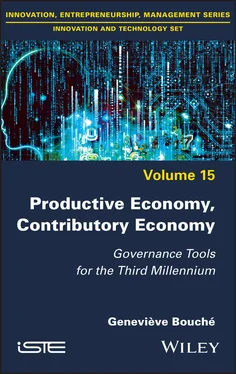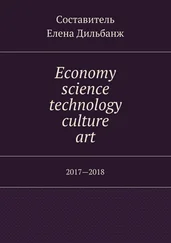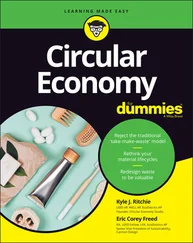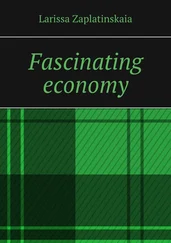155 147
156 148
157 149
158 151
159 153
160 154
161 155
162 156
163 157
164 158
165 159
166 160
167 161
168 162
169 163
170 164
171 165
172 166
173 167
174 168
175 169
176 170
177 171
178 173
179 174
180 175
181 176
182 177
183 178
184 179
185 180
186 181
187 182
188 183
189 184
190 185
191 186
192 187
193 188
194 189
195 190
196 191
197 192
198 193
199 194
200 195
201 196
202 197
203 198
204 199
205 200
206 201
207 202
208 203
209 204
210 205
211 206
212 207
213 208
214 209
215 210
216 211
217 212
218 213
219 214
220 215
221 216
222 217
223 218
224 219
225 220
226 221
227 222
228 223
229 224
230 225
231 226
232 227
233 228
234 229
235 230
236 231
237 233
238 234
239 235
240 236
241 237
242 238
243 239
244 240
245 241
246 242
247 243
248 245
249 246
250 247
251 248
252 249
253 250
254 251
255 252
256 253
257 254
258 255
259 256
260 257
261 259
262 260
263 261
264 262
265 263
266 264
267 265
268 266
269 267
270 268
271 269
272 270
273 271
274 272
275 273
276 274
277 275
278 276
279 277
Innovation and Technology Set
coordinated by
Chantal Ammi
Volume 15
Productive Economy, Contributory Economy
Governance Tools for the Third Millennium
Geneviève Bouché

First published 2022 in Great Britain and the United States by ISTE Ltd and John Wiley & Sons, Inc.
Apart from any fair dealing for the purposes of research or private study, or criticism or review, as permitted under the Copyright, Designs and Patents Act 1988, this publication may only be reproduced, stored or transmitted, in any form or by any means, with the prior permission in writing of the publishers, or in the case of reprographic reproduction in accordance with the terms and licenses issued by the CLA. Enquiries concerning reproduction outside these terms should be sent to the publishers at the undermentioned address:
ISTE Ltd
27-37 St George’s Road
London SW19 4EU
UK
www.iste.co.uk
John Wiley & Sons, Inc.
111 River Street
Hoboken, NJ 07030
USA
www.wiley.com
© ISTE Ltd 2022
The rights of Geneviève Bouché to be identified as the author of this work have been asserted by her in accordance with the Copyright, Designs and Patents Act 1988.
Any opinions, findings, and conclusions or recommendations expressed in this material are those of the author(s), contributor(s) or editor(s) and do not necessarily reflect the views of ISTE Group.
Library of Congress Control Number: 2022931285
British Library Cataloguing-in-Publication Data
A CIP record for this book is available from the British Library
ISBN 978-1-78630-751-4
Foreword by Marc Luyckx Ghisi: Extending Ideas Already Present in European Thinking
This book by Geneviève Bouché is visionary because the proposals presented in it are truly innovative and inspiring.
The basic assumption is new. It is about fully accepting the new immaterial economy built on data. But this economy is currently focused, by the GAFAs, on short-term profit and the utilitarian paradigm. And for us, in Europe, it is useless to “chase” the current Silicon Valley players. It would be a rearguard action.
On the contrary, it is a matter of innovating while understanding that one of the major challenges of our 21st century will be the reorientation of the world's immaterial economy towards the common good of all the citizens of the world and of Gaia.
This book shows us possible ways to prepare ourselves individually and collectively to build this world of tomorrow, which will be fully social and solidary, and which will also be totally respectful of and regenerative of the environment.
And there are new avenues that are opening up, because the immaterial economy offers us new tools to value the contributory economyin addition to the productive economy, which has been studied by “economic science” for centuries.
What is this contributory economy? The contributory economy is the Yin side, that is, the more feminine side of the world economy, which is concerned above all with the common good of citizens and the future of humanity and the planet. It also includes the symbiotic 1economy, which values all the work that humans do to educate children and take care of the elderly in the family, the handicapped, the weak, immigrants, the environment, etc.
Hazel Henderson, a British-American futurist friend, had already denounced in 1990 the silence of the official economy with regard to the Love Economy 2, which constitutes more than 50% of human activities.
Geneviève Bouché is gradually inviting us to a changeover to a new civilization 3that will have much more meaning, and will promote a higher ethical dimension. She also opens the door to a more interior and spiritual vision 4. In my categories, I would say that she is inviting us to leave modernity and to enter transmodernity 5, which is characterized by a return to meaning, ethics and the inner dimension.
In this new civilization, the large multinational and pyramid companies, which currently dominate the world and therefore also our European construction, are called upon to gradually disappear in favor of new “companies with a mission” which will be smaller, more ethical and more rooted in the local common good.
The author follows the intuition of the founders of the World Business Academy, created by Willis Harman (who died in 1997) and Rinaldo Brutoco, in 1985. Their intuition was to understand that companies had become too important in the world economy not to be concerned with the common good, and this in an exemplary way. These founders launched the idea that the purpose of business was no longer profit, but the service of the common good. Profit became a consequence and a criterion indicating that everything was going in the right direction.
And the second major vector of transformation that she proposes to make the most of is the monetary tool. According to the author, the tool of digitalized money will make it possible to bring the contributory and symbiotic economies into GNP accounting, which will also be completely redesigned on new bases, being more focused on the common good.
We could therefore think of an innovative type of living wage that would be linked in a new way to all new initiatives to promote the local and global common good.
I relate this vision to that of the report of the Club of Rome to the European Parliament on monetary problems 6. Alongside the major currencies, which are still useful, especially in terms of world trade, it promoted synergy with new complementary currencies, which were better able to promote the common good and strengthen a new type of social link within our communities.
But for the new societal paradigm in which the living wage fits to flourish, it will also be necessary to enter into a process of redefining the citizen in this new society. The citizen will no longer be defined by their “industrial” salary and job, so that if they lose their job, they lose their status as a fully-fledged citizen in society. On the contrary, the citizen will be redefined in all their dignity as a citizen, outside of any relation to employment, but rather as a Being who comes out of Plato's cave and seeks to see the light of the Beautiful, the Good and the True. And if this citizen receives a living wage that valorizes them in their being a citizen, they will do everything possible to give back to the society that has recognized them in their essence, the best of their economic, cultural or social creativity. And they will contribute to the progress of the common good and the quality of being of each individual and of the entire local community.
Читать дальше













